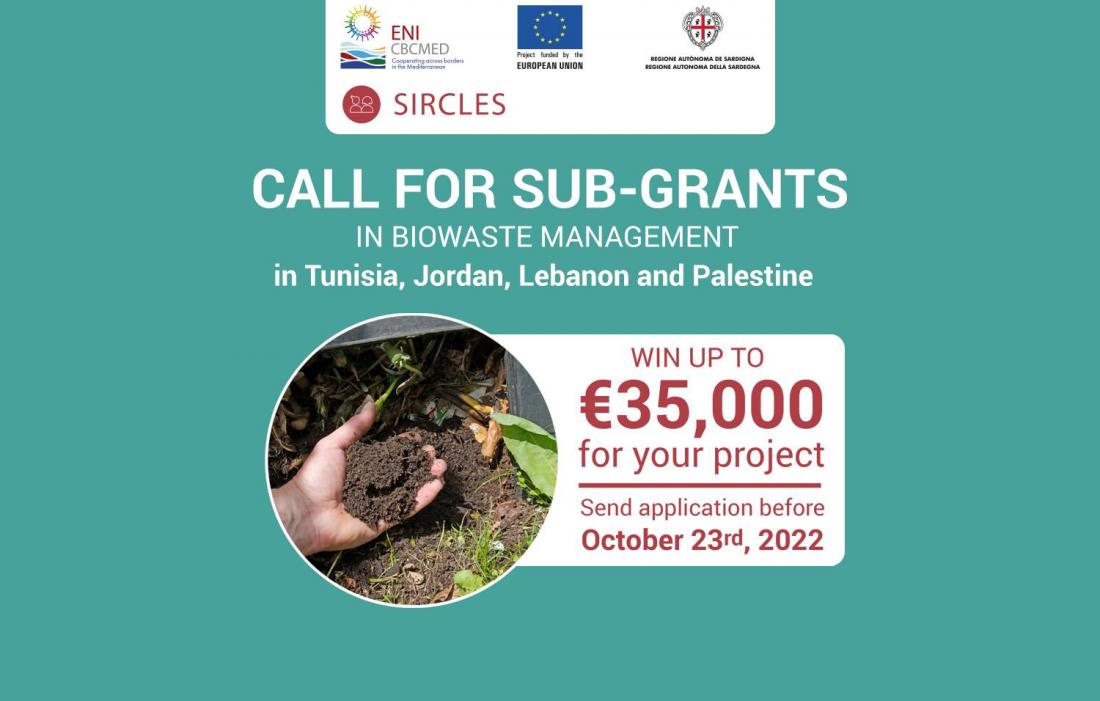SIRCLES announces its winners of its sub-grants competition on biowaste management

This article forms part of a series of publications under SIRCLES project to support circular economy opportunities for employment and social inclusion in our partner territories in Palestine, Lebanon, Spain, Tunisia, Italy, Greece, and Jordan.
As part of the SIRCLES project’s activities to enhance biowaste management in the Mediterranean, 8 applicants from Tunisia, Jordan, Palestine and Lebanon where the project is being implemented, won the “the SIRCLES project’s sub-grant competition”.
SIRCLES project launched a call for sub-grants with the objective of supporting new or existing companies in Tunisia, Jordan, Palestine and Lebanon following a circular economy business model in the field of biowaste management.
The objective of the competition is to contribute to increase green employment opportunities, especially for vulnerable social groups/groups at risk of social exclusion (i.e., young people who are Not in Employment, Education or Training (NEETs) and women) and consequently create green jobs by involving the most vulnerable sectors of the population and supporting environmental sustainability.
The eligibility criteria were that the applicants had to be a legally constituted micro, small or medium enterprise, a registered home-based business (local community) or an individual (legal person) involved in the biowaste sector in Tunisia, Jordan, Palestine and Lebanon.
The winners from Tunisia are Wallada Composte, Vers Vert and Heal land. 2 applicants will work on biowaste management projects in Lebanon : Htree and The Ground. Finally, in Palestine, the winner was Biet Al Maqudes Agricultural Cooperative Association.
Due to high rates of youth unemployment, in particular NEETs and women, the Mediterranean basin faces economic and social challenges that are not specific to one country, but rather impact all Mediterranean countries. SIRCLES partners want to explore new employment opportunities by applying the circular economy applied to the biowaste sector in Spain, Greece, Palestine, Jordan, Lebanon, Tunisia and Italy. The project mainly focuses on developing new capacities oriented to business development and separation, collection, composting and agriculture processes.









